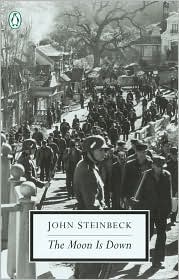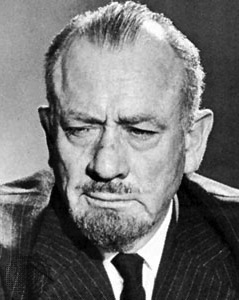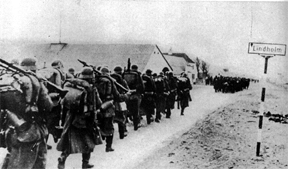“A spark in little men can burst into flame.”

In an unnamed country (similar to Norway) during World War II, a German sympathizer lures local men and the town’s twelve soldiers into the forest long enough for the Germans to take the town. They occupy the home of the mayor as a sign of their power and commandeer the local coal mine.
Mayor Orden has never before been a brave or very forceful man, but he is not a fool, and while he tries to keep order in the town, as the Germans demand, he refuses to use the power of his office to betray the ideals of his people. Soon the locals begin to sabotage everything the Germans can use to prolong the war.

The narrative is dramatic, full of conversation and containing minimal description, which gives it the feeling of a simple morality tale. Steinbeck depicts the German soldiers, at first, as almost bumbling–organized, to be sure, but basically human, showing footsoldiers getting homesick, seeking understanding of the orders they must fulfill, complaining about the weather, and wondering if their mail will arrive on time.
Gradually, as Berlin exerts more and more pressure to take out the coal, the German occupiers must impose more drastic measures. Local resistance becomes more violent in response: soldiers disappear and are found dead in snowbanks, small explosions blow up rail lines, and the miners have “accidents” which prevent the coal from being removed. Even the arrest of Mayor Orden and Doctor Winter cannot force the citizens to give in to tyranny.
 Though the novel was published in 1942 expressly for “propaganda” in Europe’s occupied countries (where it was quickly translated and disseminated secretly), it is a good story which transcends its original purpose and, as a result, it continues to find an audience.
Though the novel was published in 1942 expressly for “propaganda” in Europe’s occupied countries (where it was quickly translated and disseminated secretly), it is a good story which transcends its original purpose and, as a result, it continues to find an audience.
The depiction of the Germans as ordinary but flawed humans–“herd men who win the battles”–rather than as terrifying monsters, makes their defeat seem possible. Depicting the townspeople as resourceful but ordinary–“free men who win the wars”–rather than as heroes, makes their resistance seem natural, and victory seem possible.
Though the characters are shallow, Mayor Orden does grow and change, and his references to Plato’s defense of Aristotle in a crucial conversation with Doctor Winter put the relationship of the individual to authority into a wider context. Simple, direct, concise, and humane, this may be the most effective piece of mass propaganda ever written.
Notes: The German invasion of Norway is seen in this photo from http://www.historycentral.com
Also reviewed here: TRAVELS WITH CHARLEY, OF MICE AND MEN
